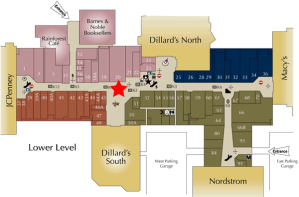I am pretty passionate about getting in touch with our strengths, and then leveraging them to really make an impact on things that matter to us. To shape careers around the things we love and are best at, so that we can make an outsized impact. To leverage the things that differentiate us in the best way possible and make our careers more fulfilling in the process.
But some of us may have never been that intentional about our path. We take a job and often stay in that space where it may take us, taking on more responsibility in similar roles over time. Years go by, and we may not feel like we are growing or fulfilled. We may know we have talents and abilities that we aren’t bringing to bear, and feel like we are working hard but perhaps without a sense of purpose and significance. This sense of missed opportunity and untapped potential can be signal to point you to this deeper development work. And it’s not just ‘what makes you feel good’ exploration – it’s about directly translating your abilities and interest into the wide array of possible jobs and industries or and careers that would play to those strengths. Are you positioning yourself to maximize the happiness and impact you can derive from your strengths?



We each have a unique profile of gifts, experiences, culture, interests, social issues we care deeply about, etc. The range of potential opportunities for employment or volunteerism are vast. Imagine the number of possible combinations where your specific profile and the world’s set of needs/employment opportunities meet up. It’s expansive and full of possibility.
What are you great at, and who needs that particular flavor of greatness?
It’s like one of those cooking shows where the contestants get a bunch of random ingredients and each make a different creation … we all have our ingredients, but what will we do with them? How creative will we be in imagining the possibilities, in preparing and presenting it to the world?

In doing development work in this space over the last year, I came across the Japanese concept of IKIGAI and was SO excited because its precisely about this work. It is a concept that relates to finding our purpose, where you find that intersect between these four quadrants:
- do what you love
- do what you are good at
- do what the world needs
- do what you can be rewarded for

Here’s a terrific Ted talk on the topic to pique your interest.
Maybe I’m a talent nerd … but this is EXCITING, right? Who’s with me?
Well it’s exciting enough to think about bringing your life and career closer to this nexus, but they imagine doing it with your CHILDREN – your adolescents and young adults that would benefit from thinking broadly and expansively about the possibilities they might pursue. Helping them take stock of their interests and abilities, helping them explore and navigate the wide range of possible ways to channel their talents. With ikigai, you can move the discussion from a place of scarcity (can I find a job) to a place of abundance (who needs what I am great at.) Folding this into our parenting has the potential to bring self awareness, purpose and life planning into our discussions with our children.
So this self professed talent nerd is thinking about what type of offering or workshop might help others explore this idea and map out the possibilities, so that career planning can be more aspirational and intentional.























 with Others – how well you work with others, collaborate, create a sense of team, help people converge around ideas.
with Others – how well you work with others, collaborate, create a sense of team, help people converge around ideas.